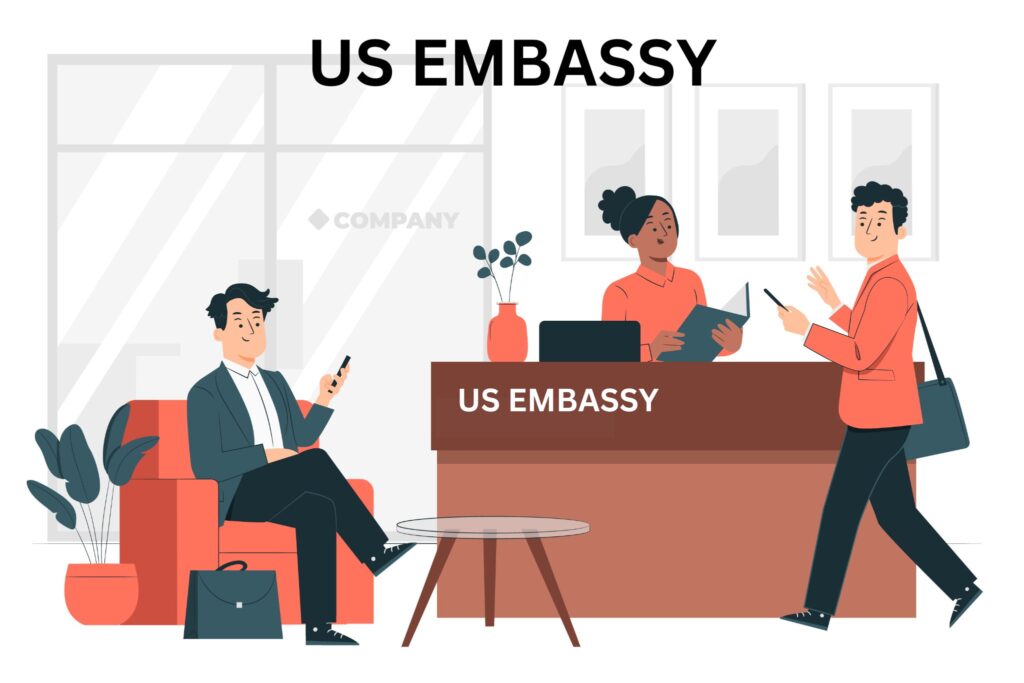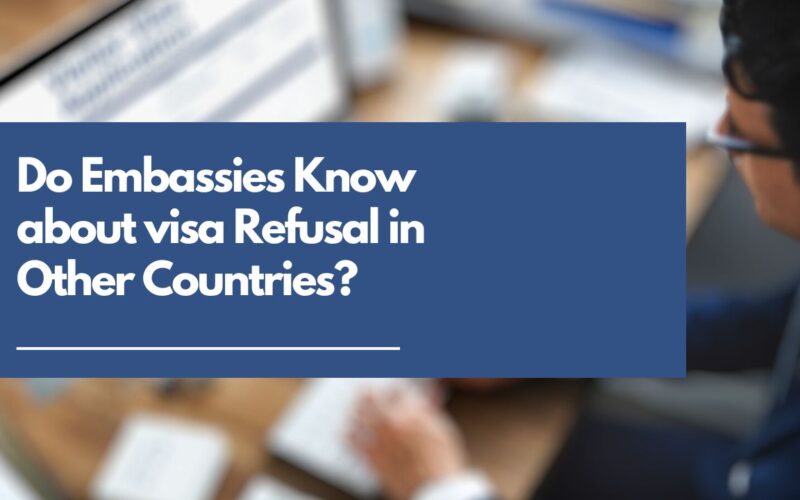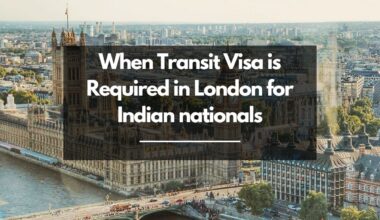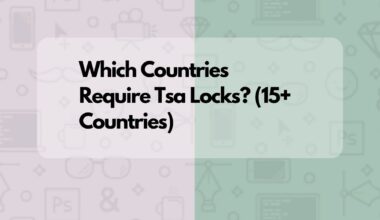As an Amazon Associate, I earn a small commission from qualifying purchases. Learn more about this.
A visa refusal can feel like a roadblock on your international journey. But does this roadblock show up on the radar of other countries? Are embassies aware of visa refusals from other nations?
If these questions have ever crossed your mind, you’re in the right place. In this blog, we’re going to dig into these queries and give you a clear insight into what you need to know.
Do Embassies Know about Visa Refusal in Other Countries?
In short, the answer can be yes or no. It depends on a variety of factors such as the countries involved, their diplomatic relations, and their information-sharing agreements.
To provide a little context, let’s first understand what an embassy does.

Embassies are diplomatic missions representing a specific country in another foreign country.
They handle matters related to travel, trade, and diplomacy. One of their key roles is processing visa applications for people who want to visit the country they represent.
When a visa is refused, it’s typically a decision made by the embassy of the country to which the applicant desires to travel. So, the question arises, does this refusal become part of an international record accessible to other embassies?
Some countries, particularly those with close diplomatic ties or mutual agreements, do share immigration-related information.
These might include countries within the European Union, or between the United States and Canada, for instance.
In such cases, a visa refusal might be visible to embassies of the partner nations, impacting future visa applications.
On the other hand, there’s no universal or global database that records all visa refusals worldwide and is accessible to all embassies.
Information exchange is often based on bilateral agreements between countries, and it’s not a standardized process across the globe.
In cases where there’s no such agreement, visa refusal information might not be available to other embassies.
Does it Matter to Get Visa Refusals?
Generally, visa refusals do matter. They don’t automatically mean you will never be granted a visa, but they do make the process more challenging and require careful handling.
Why does it matter, you ask?
Well, the main reason is that a visa refusal can potentially impact future visa applications. Most visa application forms will ask if you’ve ever been refused a visa before.
Lying about a past refusal can lead to a serious problem known as misrepresentation, which can result in permanent ineligibility for a visa.
This doesn’t mean that a past visa refusal guarantees a future refusal. Each visa application is evaluated on its own merits.
However, it does mean that a past refusal might require additional explanation or documentation to convince the consular officer of your intent and eligibility.
What’s more, repeated visa refusals may raise red flags. If you have a history of multiple visa refusals, immigration officials may be concerned about whether you genuinely intend to abide by the visa’s terms.
Tips to Avoid Getting Visa Refusals
1. Do your homework
Research is your friend when it comes to visa applications. Each country has its own set of rules and requirements, so understanding what’s expected from your specific application is key.
Visit official government websites, review guidelines, and if in doubt, don’t hesitate to reach out to consular offices or immigration professionals.
2. Be Honest
Yes, we know it sounds cliché, but it’s true. Be truthful in all aspects of your application.
This includes answering all questions accurately and disclosing past visa refusals if asked. Remember, dishonesty can lead to misrepresentation and serious repercussions.
3. Provide comprehensive and relevant documentation.
The more evidence you can provide to support your application, the better.
This might include bank statements to show financial stability, employment letters to demonstrate ties to your home country, or accommodation bookings to confirm your travel plans.
4. Apply well in advance.
Rushing an application can lead to mistakes or omissions, which are often grounds for refusal. Give yourself plenty of time to review everything thoroughly before submission.
If possible, you also want to consider seeking professional advice. Immigration lawyers and consultants understand the ins and outs of the visa application process and can provide invaluable guidance.
Conclusion
In a nutshell, the possibility of an embassy knowing about a visa refusal from another country is subject to specific circumstances, largely depending on the diplomatic relationships and agreements between countries. It’s not an absolute ‘yes’ or ‘no’ but rather a ‘depends’.







